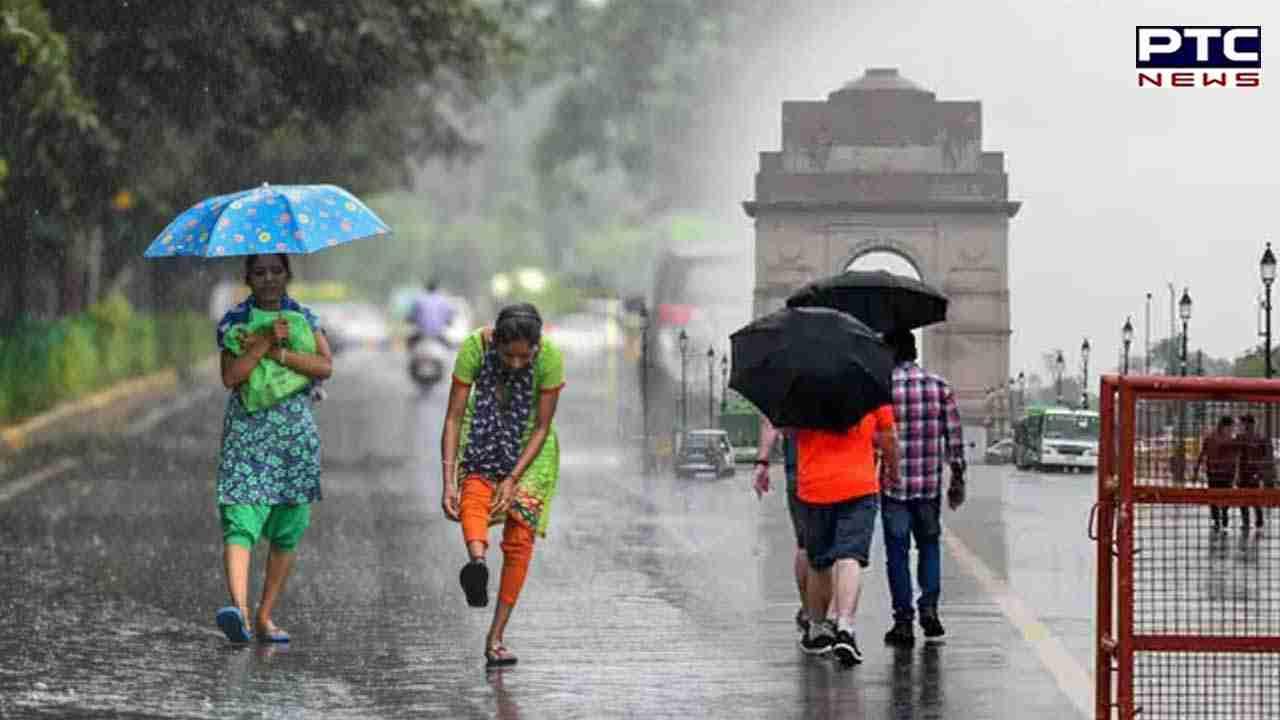- April 5, 2025
- Updated 2:22 am
Delhiites breathe easy: National capital records cleanest air in six years amid record monsoon rainfall
Delhi air quality: Delhi has achieved its cleanest air quality for any day between January 1 and August 8 over the past six years, according to the Centre’s Commission for Air Quality Management (CAQM). On Thursday, the national capital reported an Air Quality Index (AQI) of 53, which falls within the ‘satisfactory’ category.
The notable improvement in air quality is attributed to recent heavy rains that have affected Delhi during the current monsoon season. The CAQM highlighted in a tweet that this AQI reading of 53, recorded at 4 pm according to the Central Pollution Control Board (CPCB), marks the cleanest air quality for the period from January 1 to August 8 from 2018 to 2024.
AQI values are categorised as follows: 0-50 is ‘good,’ 51-100 is ‘satisfactory,’ 101-200 is ‘moderate,’ 201-300 is ‘poor,’ 301-400 is ‘very poor,’ and 401-500 is ‘severe.’ The reading of 53 indicates that Delhi’s air quality is currently at a satisfactory level.
On Thursday, Delhi experienced light rainfall, which provided some respite from the prevailing humidity. The maximum temperature for the day was recorded at 34.1 degrees Celsius, which is typical for the season, while the minimum temperature was 25.4 degrees Celsius, slightly below the usual average by 1.5 degrees.
However, the rainfall also led to traffic disruptions due to waterlogging and fallen trees. The Municipal Corporation of Delhi (MCD) received 18 complaints related to waterlogging and 16 complaints about tree uprooting.
The India Meteorological Department (IMD) has forecasted a generally cloudy sky with light rain for Friday, with the maximum and minimum temperatures expected to be around 34 and 26 degrees Celsius, respectively.

This monsoon season has been marked by significant rainfall, with Delhi receiving 554.6 mm of rain between June 1 and August 1. Notably, two extreme weather events contributed heavily to this total: 228.1 mm of rainfall on June 28 and 107.6 mm on August 1. The rainfall on June 28 was the second-highest recorded for June in 88 years, while the record for the highest 24-hour rainfall in June remains 235.5 mm, observed on June 28, 1936, at Safdarjung Observatory.
Additionally, July 31 saw 108 mm of rainfall, setting a new record for the highest daily rainfall in July in 14 years. The previous record was set on July 2, 1961, with 184 mm of rain, which had remained unbroken since 2010.
As per officials, the highest recorded 24-hour rainfall in July prior to this year was 184 mm on July 2, 1961.
Recent Posts
- Crown of goddess Kali, gifted by PM Modi, stolen from temple in Bangladesh
- Hezbollah leader survives assassination attempt amid Israeli strikes that kill 22 in Beirut
- ਕ੍ਰਿਕਟ ਦੇ ਬਦਲੇ ਨਿਯਮ, ਹੁਣ ਇਸ ਕੇਸ ‘ਚ ਦੁਬਾਰਾ ਨਹੀਂ ਮਿਲੇਗੀ ਬੈਟਿੰਗ, ਮੰਨਿਆ ਜਾਵੇਗਾ
- ਸਚਿਨ ਤੇਂਦੁਲਕਰ ਦੇ ਬਰਾਬਰ ਪਹੁੰਚੇ ਜੋ ਰੂਟ, ਪਰ ਵਿਰਾਟ ਦੇ ਇਸ ਰਿਕਾਰਡ ਤੋਂ ਅਜੇ ਵੀ ਦੂਰ
- Ratan tata death: ਸਿਰਫ ਵੋਲਟਾਸ ਹੀ ਨਹੀਂ, ਸਵੇਰ ਤੋਂ ਰਾਤ ਤੱਕ ਤੁਹਾਡਾ ਕੰਮ ਟਾਟਾ ਦੇ ਬਿਨਾਂ ਨਹੀਂ ਚੱਲ ਸਕਦਾ